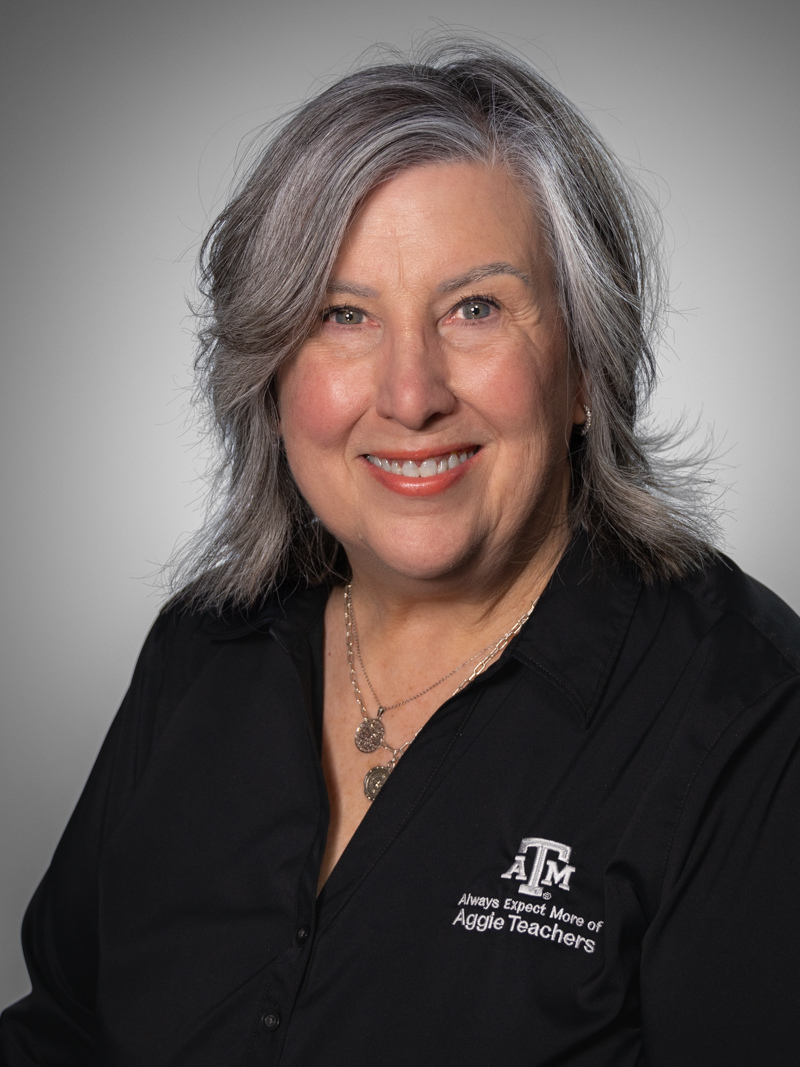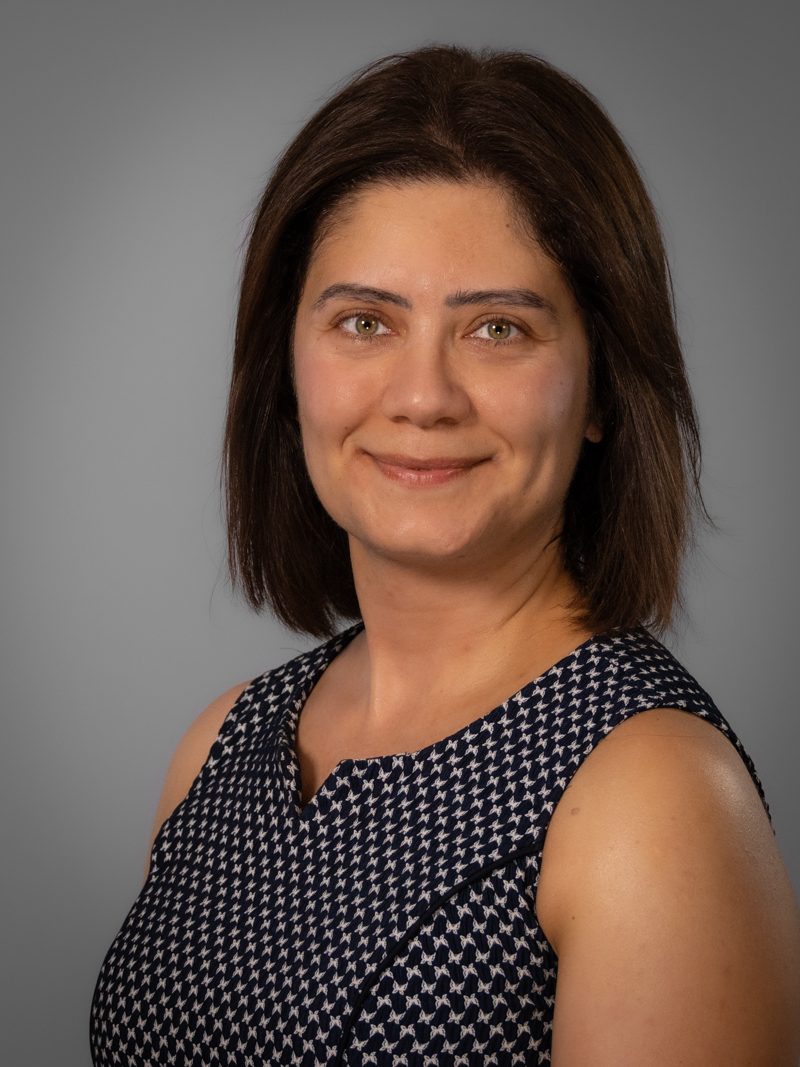Online M.Ed. in Learning Design & Technology
Effective Fall 2025, the Learning Design & Technology program will be housed in the Department of Teaching, Learning & Culture within the College of Education and Human Development.
The rapid pace of emerging technologies offers innovative opportunities for enhancing learning environments. The field of Learning Design & Technology focuses on harnessing these innovations and applying the science of learning to create active, engaging, and more effective learning experiences – whether face-to-face or virtual. With a strong foundation in instructional design, learning theory, and hands-on technology skills, graduates from our online master’s degree in Learning Design & Technology are well-prepared to leverage today’s technologies and drive future innovation in our schools and industries.
What can graduates do with this degree?
Led by faculty members with expertise in learning theory, instructional design, and online education, our M.Ed. program prepares students to become learning & development specialists and education leaders using current and cutting-edge technologies to design and develop high-impact learning experiences for a variety of audiences.
Our graduates work in the fast-growing field of Learning Design & Technology as:
- Learning Experience designers
- Learning and performance specialists
- Instructional Technologists
- Online Course Designers
- Technology coaches
- Trainers
Admissions
To be admitted to a graduate program, you must apply to the TLAC department and Texas A&M University.
How to applyDeadlines
Applications closed on July 7th for Fall 2025 admission. The deadline for Spring 2026 admission is October 20.
The M.Ed. in Learning Design & Technology does not require GRE scores.
Step 1 - Gather Information
If you are considering applying to our Learning Design & Technology M.Ed. program, the first step is to gather information about yourself and the program.
Gather information about yourself
- Your career goals. This program is geared for individuals who wish to become learning design specialists who will develop high-impact learning experiences for a variety of audiences. The program will allow you to learn about instructional design and learning theory while developing hands-on technology skills.
- Your previous academic experiences and professional roles. This program is a good match for you if you have had experience working in areas related to learning and instructional design. It is also a good match if you have career goals to create and apply more active, engaging, and effective learning experiences for students and professionals in a variety of settings.
- Your expectations. In this program, you will take courses covering educational psychology, learning theory, and more specialized courses on designing learning environments and leveraging emerging technologies.
- The timing of your application. We have two application cycles for the M.Ed. degree program – Fall & Spring. The best time for you to apply is when you are ready to start and make progress on a graduate degree program to develop learning design skills and apply a variety of technologies to enhance student learning.
Gather information about our programs
- Consider the coursework you will take. You can take a look at the courses we offer for this degree program in the “Program Details” section of this website. Our graduate student handbook is also available to offer more details about the program for M.Ed. students. All of our courses are completely online, but this does not mean you’ll be completing them in isolation. Our courses are designed to be collaborative in nature with a combination of theoretical and applied activities.
- Follow us on social media: You can take a look at our ongoing activities and learn more about what we do in the Learning Sciences area on our social media platforms. We have a Learning Sciences Facebook page and a Learning Sciences Twitter account.
- Ask remaining questions. If you have additional questions about the program, you can contact the academic advisor for graduate students. The academic advisor can help answer additional questions you may have about the admissions deadlines and required application materials. If you have specific questions about the degree or the coursework, please contact the program coordinator, Dr. Noelle Sweany at nsweany@tamu.edu.
Step 2 - Gather Materials
APPLICATION MATERIALS
All materials (except for TOEFL/IELTS scores) will be uploaded directly to the GraduateCAS Grad application. Additional information about materials can be found in our Departmental Admissions requirements page for applying to our Master’s degree programs.
- Individually prepared materials
- Statement of Purpose
- Resume/CV
- Recommendation letters submitted on your behalf
- Three letters of recommendation – these should be written by a professional colleague who can speak to your work experience
- Transcripts and standardized test scores
- Make sure you have enough time to have the official transcripts from prior degrees sent to you before the application deadline. You cannot be considered for acceptance into the program until an official transcript is on file with Texas A&M University.
- Official transcripts and records from all colleges and universities attended (excluding community colleges; minimum 3.0 GPA recommended)
- International students from non-English speaking countries only: Official TOEFL scores (or IELTS scores)
- The GRE is not required for this program.
- Make sure you have enough time to have the official transcripts from prior degrees sent to you before the application deadline. You cannot be considered for acceptance into the program until an official transcript is on file with Texas A&M University.
- Application fee
- Domestic applicants: $89 non-refundable fee
- International applicants: $114 non-refundable fee
PREPARING A STATEMENT OF PURPOSE FOR THIS PROGRAM
Your statement of purpose should include not only your inspiration for pursuing a Master’s degree; it should also highlight your past training, research, and applied experiences in relevant fields. In addition, you should also state your career goals and plans for this additional graduate training, such as the expertise and experiences you would like to develop/gain from this program. Finally, if you are applying to multiple programs across universities, each program you apply to will be different. Remember to customize your statement of purpose for each program. This allows you to better illustrate how each specific program will be useful and help you meet your career goals.
- Preparing your personal statement for graduate school applications: https://www.apa.org/ed/precollege/psn/2016/09/graduate-school-applications
PREPARING A RESUME/CV FOR THIS PROGRAM
In general, your CV should highlight your past academic and professional experiences relevant to the program you are applying to. This could include (but not limited to) your education background, past research training and achievement, past teaching experience and certification, and applied work/volunteer experience (e.g., experience working with youth and families as a counselor, social worker, program developer, etc).
- Build a better CV: https://www.apa.org/gradpsych/2015/01/curriculum-vitae
PREPARING REFERENCES TO WRITE LETTERS OF RECOMMENDATION FOR THIS PROGRAM
Letters of recommendations should be from professors, course instructors, or research mentors. Letters should not be from family or friends.
- The art of the letter: https://www.apa.org/monitor/2017/01/letter-recommendation
GENERAL TIPS
- Preparing and Applying for Graduate School in Psychology: https://www.apa.org/education-career/grad/application-video-series
Step 3 - Please Read Before You Apply
Important! Please make sure you apply to the correct program: Master’s of Education degree in Learning Design & Technology. If you do not see the program listed in the application portal it is possible the deadline has passed. If this occurs, please contact the academic advisor for graduate students for further advice.
Program Details
Degree: M.Ed. in Learning Design & Technology
Degrees Offered: Master of Education (M.Ed.)
Delivery: Online
Credit Hours: 36 Hours
Curriculum
All required courses for this program are offered 100% online.
Foundation Courses
6 credit hours
EPSY 602:Educational Psychology
EPSY 673:Learning Theories
Specialized Courses
12 credit hours
LDTC 602: Educational Technology Field, Theory and Profession
LDTC 645: Emerging Tech. for Learning I
LDTC 651: E-Learning Design and Development
LDTC 654: Instructional Design
Research Courses
3 credit hours: one of the following courses
EPSY 607: Understanding Research from a Consumer’s Perspective
EPSY 622: Measurement and Evaluation
Additional Elective Coursework
15 credit hours
LDTC 608: Online Course Design
LDTC 613:Integrating Technology in Learning Environments
LDTC 621: Graphic Communication and Interface Design
LDTC 631: Educational Video
LDTC 642: Designing for Mobile Learning
LDTC 646: Emerging Technologies for Learning II
LDTC 649: Teaching and Learning with Artificial Intelligence
LDTC 684: Internship
EDCI 604: E-Learning Classroom Management
EDCI 620: STEM Teaching & Learning
EDCI 676: Evaluation and Implementation of Digital Learning Materials
EHRD 630: Adult Learning
EPSY 624: Creative Thinking
EPSY 608: Coaching Individuals
EPSY 609: Coaching Groups & Teams
EPSY 631: Program Evaluation
EPSY 645: Creative Genius
Other Notes
- The Learning Design & Technology program requires a minimum of 36 credits to earn a M.Ed.
- Core course requirements may be waived for students who have successfully comparable graduate coursework.
- Students have the option to include one graduate-level course outside of the program, with advisor approval.
For a better understanding of your total cost of attendance (COA), please visit our cost and tuition rates webpage (https://aggie.tamu.edu/billing-and-payments/cost-and-tuition-rates). This webpage will provide you with an opportunity to review estimated COA information for undergraduate, graduate and professional students, as well as other resources such as the tuition calculator and billing and fee explanations.
Contact Advisors

Contact Faculty





